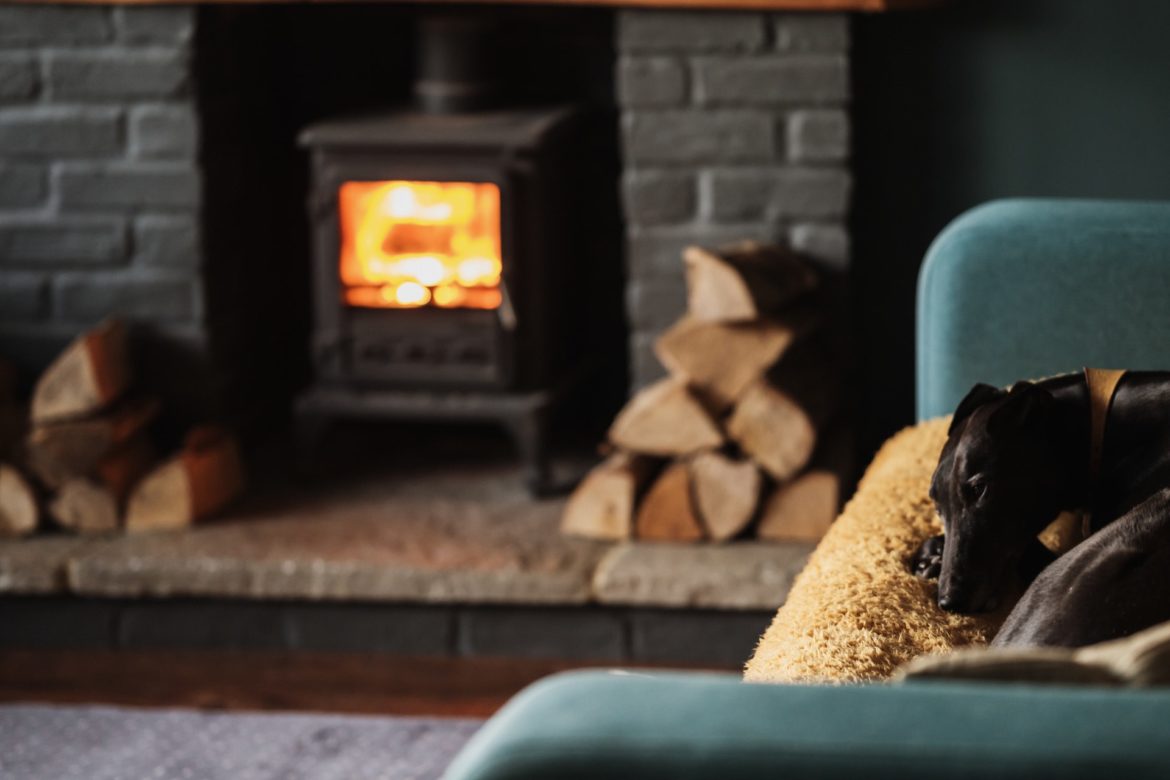Many families are deciding to live “off the grid”, but there isn’t just one specific reason why this is happening. Some families choose to live off the grid because they can save a significant amount of money, while others choose to live off the grid because they want to pursue a more sustainable lifestyle. Either way, there is one important aspect of living off grid that many have to consider: how will they heat their home if they aren’t relying on electricity? What off grid heating system do you choose?
Luckily, there’s a myriad of ways to make sure that off-grid homes are kept warm. Some solutions are more complex, while other heating systems don’t require a wealth of technical knowledge. Other off grid heating systems might save you a lot of money but might not be as practical. Here are some off-grid heating systems to keep your home warm as possible.
Wood Burning Stoves
When you begin to read about families that live off the grid, there’s a good chance that they will talk about a wood burning stove. Why is a wood burning stove a popular option for families that live off the grid and hope to keep warm? The answer is simple: there is firewood all over the world, and there’s a good chance that if you are living off the grid, that you have access to firewood of some kind.
The great thing about a wood burning stove is that you can actually find and store firewood, which means that you can “stock up” to make sure that you remain warm during winter months. This means that you can potentially find twelve months’ worth of firewood, store it, and not have to think about heat sources for an entire year. It’s easy to see how many people who choose this lifestyle turn to wood burning stoves as an off-grid heating system.
Wood burning stoves don’t require any electricity, but they do need to be cleaned and maintained. It might not surprise you to find that creosote deposits and ash tend to build up over time, and there’s one disadvantage: wood burning stoves aren’t ideal for very small homes. They also require a significant amount of supervision, and this can grow inconvenient over time.
Solar Heat
Many people who are drawn to the off-grid lifestyle are focused on sustainability, and solar heat is a renewable energy source. As a result, many decide on solar heat as their off-grid heating system. However, there is an obvious drawback: What if you live in a region of the world where there isn’t much sunlight? It is easy to see how this can be a frustrating experience, and it might lead to deciding that solar isn’t the off-grid heating system for you.
It’s also important to note that your home should be designed for solar heat. There’s a lot involved with solar heat, and you need to know when and where the sunlight comes in. Do you have enough windows for your home to remain warm? Are the solar panels facing the right direction? Are your surfaces absorbing heat (it helps if your surface is dark)? These are questions to consider before considering solar power as an off-grid heating system.
It might not be for everyone, but solar heat as an off-grid heating system can be a great decision. Also, you should make sure that the heat can circulate around the entire home. Some families choose to purchase a passive solar home that is specifically designed for solar heat, as well.
Propane Heaters
One of most common ways to heat a home is using a propane heater, and it’s quite a popular off grid heating system all over the world. Propane is quite energy-efficient, and it doesn’t degrade at the same rate as other fuels. Because of this fact alone, many people who live off the grid use propane in order to power their appliances, cooking, backup generators, and more.
There are also specific propane-powered appliances, which also helps out tremendously in terms of convenience. For example, you can actually purchase a propane-powered refrigerator. There are even advantages to this purchase, as a propane-powered refrigerator is often more quiet than other types of refrigerators.
Propane gas might not be the cleanest fuel out there, but it’s quite affordable. This is obviously a huge positive for those who live off grid to save money. Solar power might be a more sustainable way to heat your home, but the truth is that it is often much more expensive than other methods.
There are some drawbacks to propane heaters, unfortunately. The cost of propane can vary in regions throughout the world, which means that you might be spending more money than you thought. Also, there are safety hazards when it comes to storing pressurized propane tanks that you should consider. Propane appliances are often quite difficult to repair and require a significant amount of technical knowledge.
Conclusion
There’s a lot to consider when it comes to choosing an off-grid heating system. You not only have to think about where you live and weather conditions; families also have to consider the size of their home to figure out the off grid heating system that might make the most sense for them. Of course, there are also other factors to consider, such as interior/exterior insulation, closing off empty rooms, and whether you should be sealing windows somehow.
Others might choose an off-grid heating system based on how much space it takes up, or whether it fits in with their home aesthetic, as well. While this might not be the most important factor for you when choosing an off-grid heating system, it still should be factored in. At the end of the day, your heating system should be a part of your home, and fit in with your lifestyle.

